 Movies and TV
Movies and TV  Movies and TV
Movies and TV  History
History 10 Wars That Sound Made Up (but Absolutely Happened)
 Movies and TV
Movies and TV 10 Movie Adaptations That Ruined Everything for Some Fans
 History
History 10 Dirty Government Secrets Revealed by Declassified Files
 Weird Stuff
Weird Stuff 10 Wacky Conspiracy Theories You Will Need to Sit Down For
 Movies and TV
Movies and TV 10 Weird Ways That TV Shows Were Censored
 Our World
Our World 10 Places with Geological Features That Shouldn’t Exist
 Crime
Crime 10 Dark Details of the “Bodies in the Barrels” Murders
 Animals
Animals The Animal Kingdom’s 10 Greatest Dance Moves
 Movies and TV
Movies and TV 10 Box Office Bombs That We Should Have Predicted in 2025
 Movies and TV
Movies and TV 10 Movie Franchises That Started Dark but Turned Surprisingly Soft
 History
History 10 Wars That Sound Made Up (but Absolutely Happened)
 Movies and TV
Movies and TV 10 Movie Adaptations That Ruined Everything for Some Fans
Who's Behind Listverse?

Jamie Frater
Head Editor
Jamie founded Listverse due to an insatiable desire to share fascinating, obscure, and bizarre facts. He has been a guest speaker on numerous national radio and television stations and is a five time published author.
More About Us History
History 10 Dirty Government Secrets Revealed by Declassified Files
 Weird Stuff
Weird Stuff 10 Wacky Conspiracy Theories You Will Need to Sit Down For
 Movies and TV
Movies and TV 10 Weird Ways That TV Shows Were Censored
 Our World
Our World 10 Places with Geological Features That Shouldn’t Exist
 Crime
Crime 10 Dark Details of the “Bodies in the Barrels” Murders
 Animals
Animals The Animal Kingdom’s 10 Greatest Dance Moves
 Movies and TV
Movies and TV 10 Box Office Bombs That We Should Have Predicted in 2025
10 Of History’s Strangest Duels
Duels were once considered the height of chivalry, the proper way for people of a certain class to settle their differences. Not all duels went off without a hitch, though, and certainly not all of them were fought with pistols or swords. The stories behind some duels—and some of those that never happened—are much, much stranger.
10Billiard Balls

Sometimes, a duel is the proper and honorable way for gentlemen to settle their differences, whatever they may be. Other duels seem more like frat party dares gone really wrong.
On what was an otherwise quiet September day in 1843, a game of billiards in Maisonfort, France went terribly sideways. The two opponents, Melfant and Lenfant, began to argue about how the game was going and whether or not any rules had been broken. Unable to settle their differences by arguing, they decided to do so by dueling. Presumably because the argument had been about a billiards game, they decided to use billiard balls as their weapon of choice. They drew to see who would be throwing first, and Melfant won. They set up according to all the usual rules of dueling, standing the proper distance apart—12 paces.
With the comment, “I am going to kill you at the first throw!” Melfant threw the ball, and did exactly that. Lenfant died instantly when the ball hit him squarely in the forehead. Even though Melfant had technically won the duel, he didn’t have a happy ending. Officials didn’t view it as an honorable duel at all, and Melfant was arrested, tried, and convicted for manslaughter.
9Abraham Lincoln’s Near Duel
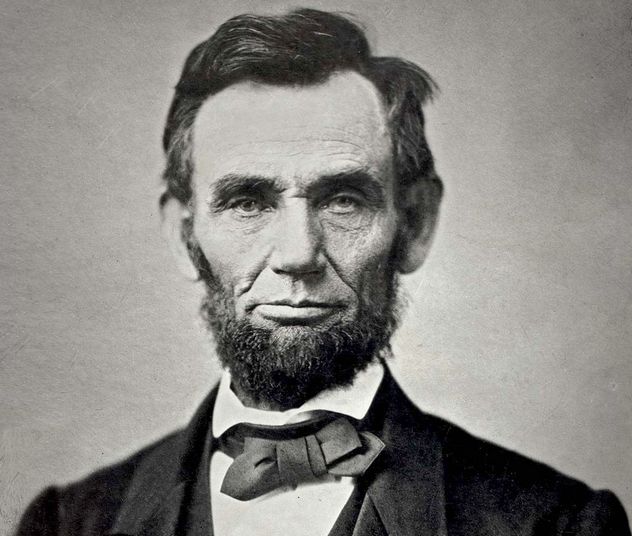
In case you think that being a troll is something new, trolling was a thing at least since Abraham Lincoln—and he was phenomenal at it.
In 1842, James Shields, the State Auditor of Illinois, supported the closing of the Illinois State Bank after it faced some financial troubles. Lincoln thought otherwise, and rather than engaging in an upfront debate, he went the troll route. At the time, Lincoln was friends with Simeon Francis, editor of the Sangamo Journal. Lincoln submitted a letter to the paper, written under the guise of an Illinois farmer “Rebecca.” He took aim not only at the immense price the everyman would have to pay because of the bank’s collapse but also said some pretty personal things about Shields himself, making fun of his high self-importance and apologizing to all the women he just couldn’t marry. Lincoln’s then-girlfriend, Mary Todd, also got in on the action. Her letter was written by “Cathleen” and was no less scathing.
Shields demanded to know who had written the demeaning letters, and the editor folded. Shields demanded a duel for his honor, feeling that he had been rather savagely attacked. As the challenged, Lincoln was entitled to choose the conditions of the duel. He chose massive cavalry broadswords, which gave the 193-centimeter (6’4″) Lincoln an advantage over the 175-centimeter (5’9″) Shields. They faced off on Missouri’s Bloody Island. The duel ended with an abrupt truce after Lincoln hacked down an overhead tree branch, and Shields decided he wasn’t that angry after all.
8Proust Duels His Critic
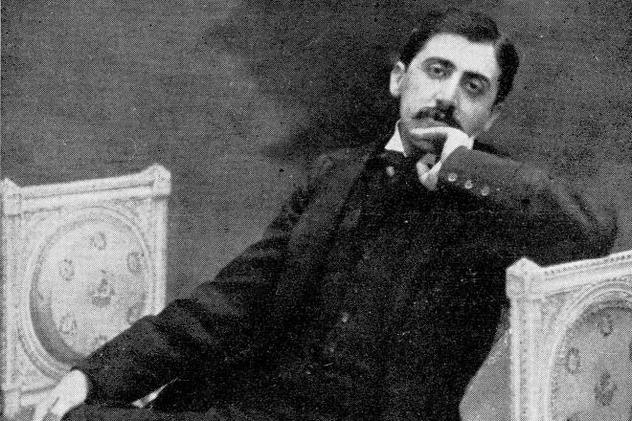
Literary critic Jean Lorrain didn’t like Marcel Proust. In one of his articles, he called Proust “one of those small-time fops in literary heat” and suggested that Proust was involved in a homosexual love affair with a friend named Lucien Daudet. By all accounts, it was something that Lorrain was well known for. He was one of those critics that didn’t actually seem to have anything constructive to say and relied on stirring up trouble and name-calling to secure his popularity. Because people are people, he was incredibly widely read. Proust wasn’t the first one to be targeted by the critic. He wasn’t about to take it lightly, though.
Being gay wasn’t against the law at the time, but there was a certain stigma attached to it. Proust challenged Lorrain to a duel in order to put an end to the matter. They met at the forest of Meudon. The two men exchanged shots, no one was wounded, and the matter was considered settled.
The accusation and the duel offer some intriguing implications when looking at Proust’s later work. The sexual orientation of the title character of Swann’s Way has long been debated, with many suggesting that the secretive sort of double life the character lives was a way of discreetly expressing the emotionally torn nature of the 19th-century gay man. Some biographers have gone as far as to say that Proust was both gay and in denial of the fact, putting the duel in an even more intriguing light.
7The South’s Dramatic Duelist
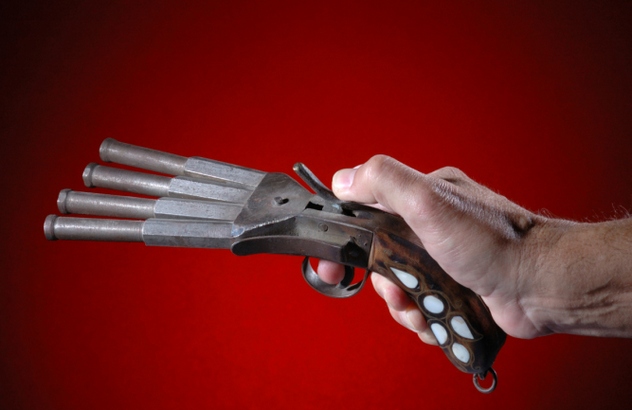
Duels were supposed to be the gentleman’s way of settling something, but some people took it way beyond that.
Kentucky’s infamous duelist Alexander Keith McClung was well known for challenging people to duels for reasons that were more along the lines of “just because” than due to any actual insult or slight. He became known as the “Black Knight of the South,” although he didn’t strike only in the southern United States. McClung also fought in several duels while he was in Uruguay, and even though estimates vary as to how many men he’d actually killed in a duel, the accepted number is more than 10.
McClung’s reputation trapped him in something of a downward spiral. The more duels he fought, the worse his reputation became, the more he drank, and the shorter his temper got. Rather understandably, people started just staying away from McClung, which made him lash out even more. He was briefly pursued by a Southern society lady, who wrote about him in her memoirs and provided a pretty intriguing look into the inner circle of the South. She also described his habit of hanging around in cemeteries and looking morose. Eventually, McClung gave in to his ever-spiraling moods, killing himself in Jackson, Mississippi in 1855.
6Ben Jonson

Ben Jonson was a playwright and occasional actor who worked during William Shakespeare’s time. The first play Jonson wrote and staged, Every Man In His Humor, had Shakespeare in it. In comparing the two, though, you could say that Jonson had a few more brushes with the law. Another early play, The Isle of Dogs, was thought to be doing nothing less than encouraging outright rebellion against the state and saw the ex-military man jailed for sedition.
The details surrounding the exact circumstances of Jonson’s duel are a bit hazy, but it ended with the death of a fellow actor named Gabriel Spencer. Spencer was one of the company’s leading men, and when he was killed, Jonson found himself being brought up on charges over it.
In order to get out of the charges, Jonson performed a simply miraculous feat in court: He wrote. By proving that he could read and write in Latin, he was able to exercise a defense called pleading the benefit of clergy. This basically meant that since Jonson’s knowledge was on par with that of the clergy, he could get a more lenient court sentence. As a result, Jonson only spent a couple of weeks in jail, but that wasn’t by any means the only time he found himself there. Jonson’s later stint in Newgate Prison happened when he didn’t quite get away with the same defense, and it was there that he did something even more questionable for the time: He converted to Catholicism.
5George Frideric Handel

Handel is one of the world’s greatest composers. His name is almost synonymous with one of his most famous compositions—the Messiah. But he may not have been around to compose it, if it weren’t for a button.
First living in Hamburg, Handel moved in with a like-minded young composer named Johann Mattheson. The friendship was somewhat tense from the outset, with both competing for many of the same things. When auditioning for the role of an organist, neither one ended up wanting the job that also came with a marriage contract. Mattheson’s career took off first. During a performance of his opera, Cleopatra, Mattheson was doing double duty—being in the orchestra pit and playing Antonius—to make sure that it was very clear to the audience who was responsible for the production. Handel was in the pit as both a conductor and harpsichord player; when it came time for Handel to turn the reins over to Mattheson, Handel outright refused.
The audience witnessed the confrontation. Afterward, they followed the composers out into the street and, as opera audiences often do, catcalled and heckled until they started a duel. Fought with swords, it ended in a draw. Mattheson later stated that the only reason his blow hadn’t been fatal was because his sword had broken on one of Handel’s coat buttons. The two ended up reconciling and wrote to each other throughout their careers.
4The Duel Over The Donner Party
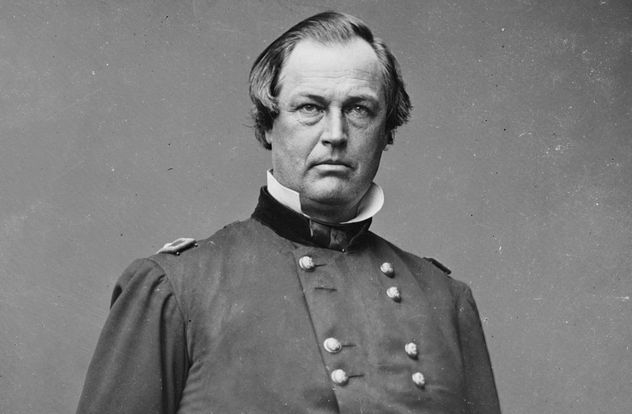
After the tragedy that surrounded the Donner party’s ill-fated attempt to make it across the mountains to California, James Denver, California’s Secretary of State, issued a bill that stated California would be providing aid to people crossing the mountains. Denver also specifically stated that he would provide aid to the remaining members of the Donner party. When a supply train left for the mountains, it was done with impressive fanfare, which the Daily Alta California editor Edward Gilbert said was a pretty obvious attempt to capitalize on tragedy to get ahead in the polls. Words were exchanged and words were published, including some that were defined as using “unmistakably discourteous language.” Gilbert finally challenged Denver to a duel over the matter.
Gilbert survived the first round but not the second, dying minutes after being shot by the general. After that first round, Denver had tried to call off the rest of the duel and reconcile their differences peacefully, but Gilbert stubbornly refused. According to eyewitnesses, Denver said he had no choice but to defend himself. The incident also proved that even in the 1850s, dueling was rather well respected. Denver went on to become the Governor of the Kansas Territory and give his name to Denver, Colorado.
3The Legend Of Mark Twain’s Duel
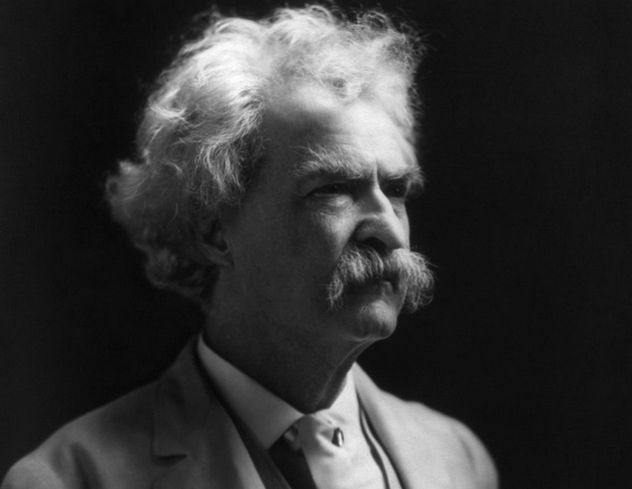
On the subject of duels, Mark Twain wrote, “I thoroughly disapprove of duels. If a man should challenge me, I would take him kindly and forgivingly by the hand and lead him to a quiet place and kill him.” Based on his experience with duels, it’s no wonder.
Like many of the stories around Mark Twain, just what happened is still up for debate. According to the popular story, Twain was working for a paper called the Territorial Enterprise when he got caught up in an animated exchange of insults with another editor, James Laird. Eventually, the insults culminated in the challenge of a duel, although who issued the challenge isn’t quite clear. When it came time, Twain was practicing with his second. Presumably, Twain knew beforehand what a horrible shot he really was. According to his own works, he quite literally couldn’t hit a barn door. His second, however, was a much better shot. When they told Laird that it was Twain who had shot the head off a bird, Laird not only believed them but called off the impending duel.
Twain still left the city not long after. The gun he had once used now sits in the Nevada Historical Society, which is hoping to do even more research to confirm the details of the story.
2The Court-Ordered Medieval Duel
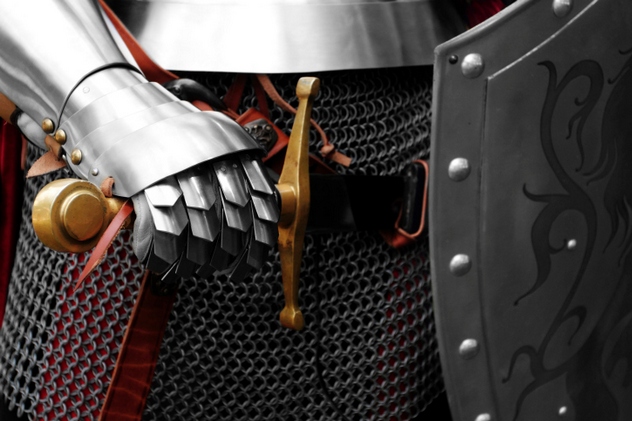
In 1386, the Paris government turned to the duel to decide matters in a court case. It would be the last time a French court ordered citizens to decide the outcome of a case by duel. The case was brought by Sir Jean de Carrouges, a knight who had been away on an overseas deployment. He had left his household and his wife behind. While he was gone, she was raped by one of the servants. According to the lady, the squire, named Jacques Le Gris, had instructed her not to tell anyone, as no one would believe her anyway. Le Gris was a favorite among the household and the court, using his position to get exactly what he wanted.
When her husband returned from overseas, she told him what had happened—and it briefly looked as though Le Gris’s warning had been right. However, charges were eventually brought against the squire who had taken care to be seen in public on the morning before the attack. The court ruled that the wife had dreamed the whole thing, but the knight insisted on pursuing the charges. Since neither side could prove their case, it was decided that the matter should be settled by a duel, as soon as the king returned to Paris to be in attendance.
It was a big deal, and there was a lot at stake. The loser would be found guilty and hanged. If it was the knight, his wife would have been burned at the stake. It wasn’t. Le Gris died at the hands of a wounded knight, and his body was hanged afterward for good measure.
1The Princess And The Countess
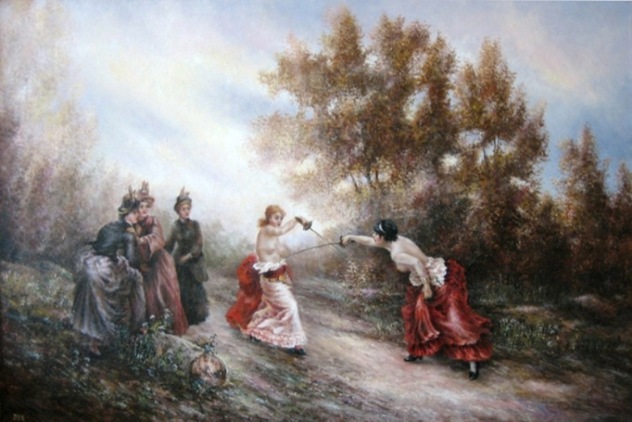
Dueling wasn’t a male-only occupation, and there’s one incident in history that stands out as the prime example of just what happens when two royal women get to arguing.
In 1892, Princess Pauline Metternich and Countess Kielmannsegg were going over ideas for floral arrangements to be presented at an upcoming musical exhibition. The discussion grew so heated that they eventually decided there was no way to settle it aside from picking up their swords. The two women faced each other under the watchful eye of a pretty unique woman, Baroness Lubinska, whose presence at the duel was largely due to her having a medical degree. Because of her experience on the battlefield, Lubinska had seen many infections. She suggested that the two women fight topless to keep any cuts and scrapes from getting infected. Since there were only women present, the story goes, they decided to do exactly that.
The women partially stripped and started swinging. The princess drew first blood with a wound to the face but was apparently so shocked by what she’d done that she forgot to defend herself against another swing, taking a piercing blow to the forearm. Their seconds promptly fainted at the sight of blood, and the steadfast baroness patched up their respective wounds.
The fact that they had fought topless wasn’t a secret for long, and there’s a wealth of artwork and paintings depicting the so-called “emancipating duels” fought by women. These paintings seem to have remained popular for as long as dueling was a thing.








